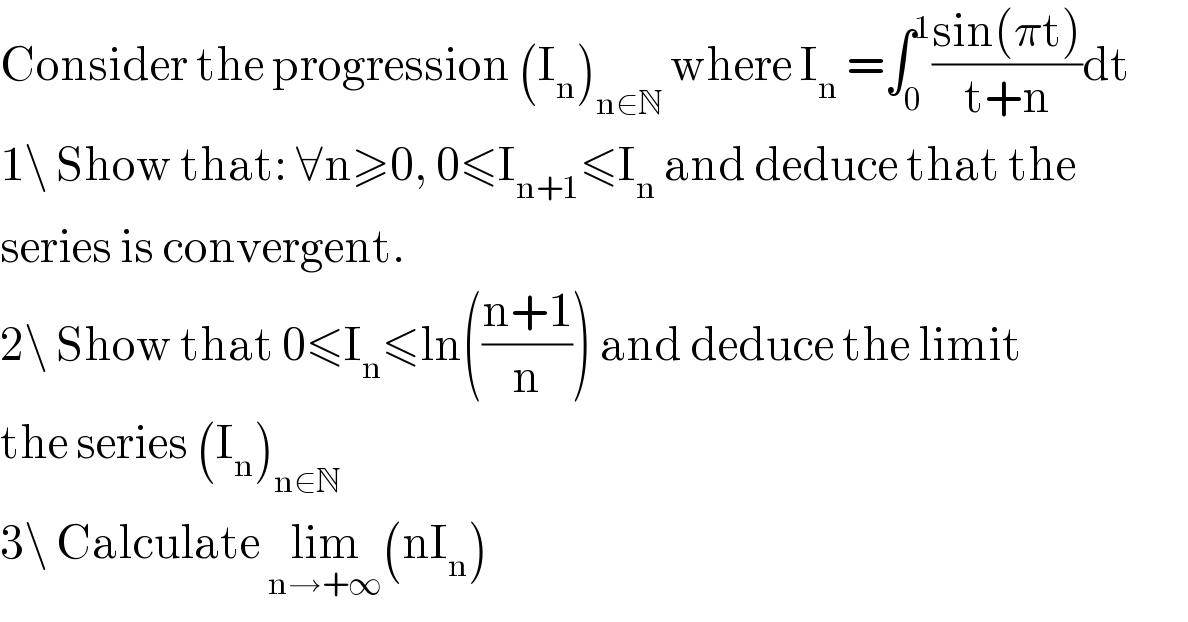
Question and Answers Forum
Question Number 93860 by Ar Brandon last updated on 15/May/20

Commented by mathmax by abdo last updated on 15/May/20
![1) I_n =∫_0 ^1 ((sin(πt))/(t+n))dt its clear that I_n ≥0 we have I_n −I_(n+1) =∫_0 ^1 ((sin(πt))/(t+n))dt−∫_0 ^1 ((sin(πt))/(t+n+1))dt =∫_0 ^1 sin(πt)((1/(t+n))−(1/(t+n+1)))dt =∫_0 ^1 ((sin(πt))/((t+n)(t+n+1)))dt ≥0 ⇒ ( sin(πt)≥0 on[0,1]) I_n is decrasing and minored by 0 ⇒ I_n is convergent.](Q93886.png)
Commented by mathmax by abdo last updated on 15/May/20
![2) we have I_n =∫_0 ^1 ((sin(πt))/(t+n))dt ≤∫_0 ^1 (dt/(t+n)) =[ln(t+n)]_0 ^1 =ln(((n+1)/n)) ⇒ 0≤I_n ≤ln(((n+1)/n)) we have ln(((n+1)/n))=ln(1+(1/n))→0(n→+∞) ⇒ lim_(n→+∞) I_n =0](Q93887.png)
Commented by mathmax by abdo last updated on 15/May/20
![3) we have I_n =∫_0 ^1 ((sin(πt))/(t+n))dt =_(πt =x) ∫_0 ^π ((sin(x))/((x/π)+n)) (dx/π) =∫_0 ^π ((sinx)/(x+nπ))dx =(1/n)∫_0 ^π ((sin(x))/((x/n)+π))dx ⇒nI_n =∫_0 ^π ((sinx)/((x/n)+π))dx ⇒ lim_(n→+∞) nI_n =(1/π)∫_0 ^π sinx dx =(1/π)[−cosx]_0 ^π =(2/π)](Q93888.png)
Commented by Ar Brandon last updated on 15/May/20
Great job, thanks ��
Commented by mathmax by abdo last updated on 16/May/20

